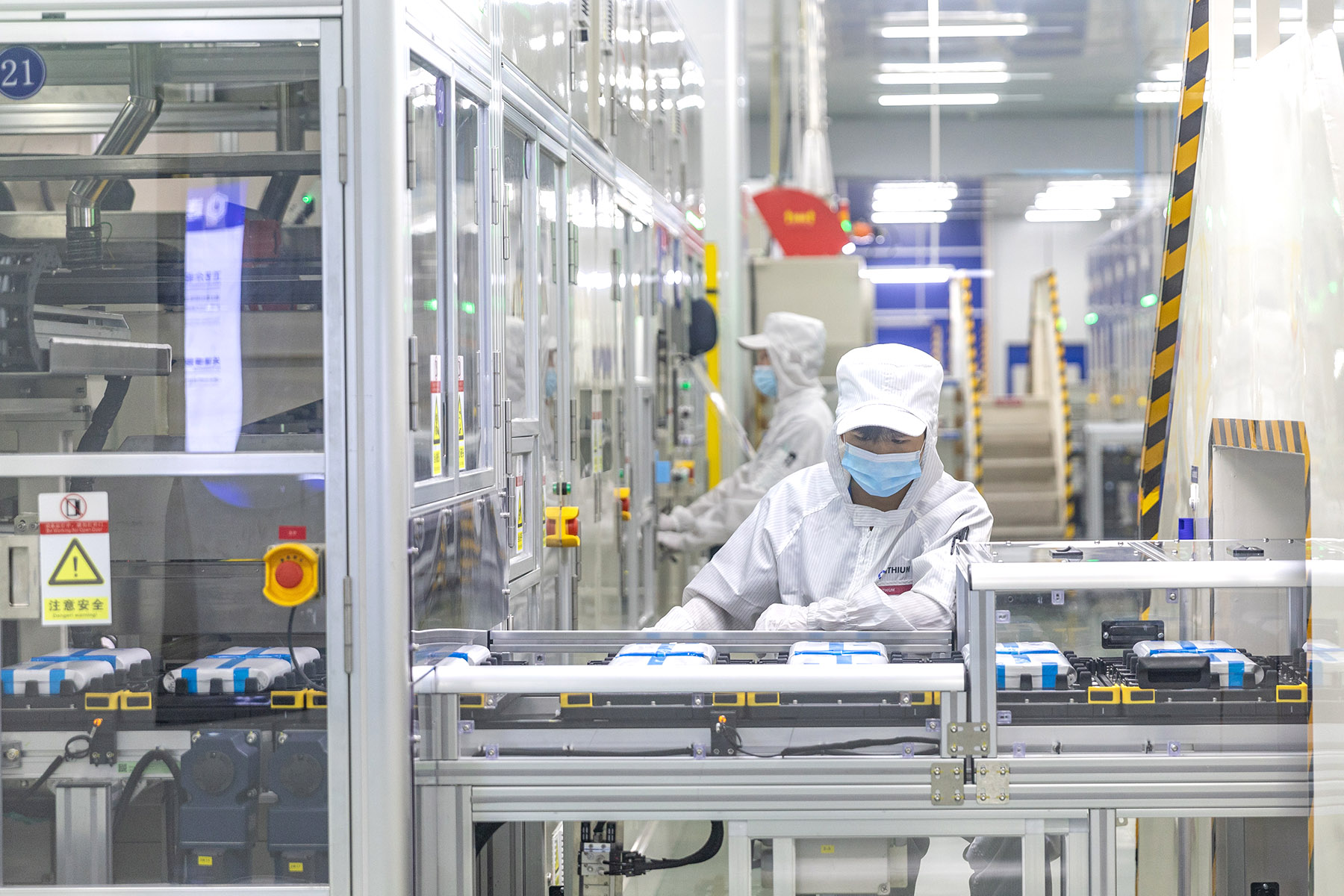Growth to be fueled by market demand and supportive government policies

China's energy storage industry is set to experience significant growth through 2027, fueled by a combination of growing market demand and supportive government policies, according to industry experts and company executives.
The country's new energy storage sector, which is currently in its early stages, is expected to evolve from a nascent market player to a global leader in the coming years, they said.
"Key developments in energy storage technologies will play a pivotal role in integrating renewable energy sources and smart grids, thus enhancing the overall flexibility and efficiency of China's energy system," said Fei Zhi, vice-chairman of GCL Group.
READ MORE: Private firms encouraged to further invest in nation's EV charging service
"The new energy storage industry is poised to leap from a novice to a pioneer by 2027, driven by technological advances and the increased integration of renewable energy generation," he said.
"These developments will improve the system's flexibility, enabling more efficient energy use across the nation."
Fei's comments came in response to a government action plan announced recently, which outlines measures to foster high-quality development in the energy storage sector while promoting innovation, competitiveness, and environmentally sustainable growth.
As part of the government's push, China plans to cultivate three to five leading energy storage enterprises by 2027 and establish a regional clustering pattern to enhance the sector's innovation and market influence. The policy seeks to advance the full-chain development of energy storage technologies, which are vital for optimizing the use of new energy resources.
Amid the backdrop, the listed company under GCL Group, GCL Energy Technology Co Ltd, has been actively exploring innovations in business models, such as the virtual power plant model, which expands revenue channels through electricity market trading and ancillary services.
The company is also strengthening vehicle-to-grid applications and partnered with Chinese carmaker Nio last year to jointly develop a network of 100 energy stations as part of its national energy storage blueprint.
According to the plan, the government will further enhance support for the value chain of relevant manufacturing enterprises and foster a service-oriented manufacturing model. China will also seek to drive the extensive adoption of next-generation information technologies, including blockchain, big data, artificial intelligence and 5G, within the new-energy storage manufacturing sector, it said.
The government will also accelerate the construction of smart factories in relevant industries. It will promote the digital transformation of key processes in new energy storage production and system integration, utilizing technologies like machine vision, ultrasound and infrared thermography for enhanced quality control.
China's energy storage manufacturing industry is already at the forefront of global standards and will continue to lead the industry in advanced power trading and grid integration technologies in the future, said Tian Qingjun, senior vice-president of Envision Group.
"Developed countries overseas have mature electricity markets but relatively weaker grid environments, creating significant demand for trading and grid forming technologies. Domestic energy storage companies should increase their research and development efforts to cater to the needs of overseas markets," he said.
As a global leader in energy storage system integration, Envision has made significant breakthroughs in trading-based and grid-integrated energy storage technologies. The company has already validated these technologies through numerous projects in both domestic and international markets.
The government's long-term goal is to position China as a global manufacturing powerhouse in energy storage, contributing to the efficient development and utilization of renewable energy resources, experts said.
The Chinese energy storage market is expected to benefit from the surge in renewable energy production, such as solar and wind power, which requires efficient storage solutions to balance supply and demand, said Wang Shouxiang, a professor with the School of Electrical and Information Engineering of Tianjin University.
Additionally, the expansion of electric vehicles and the growing trend of decentralizing power generation are further driving the need for advanced energy storage systems, he said.
Wang said China has achieved an early global leadership position in the key technological field of new energy storage, which is critical for the large-scale development of renewable energy.
ALSO READ: Advancements in technology commended
China now possesses core technologies across the entire industry value chain, giving it a competitive edge in the field. This strengthens and complements China's leadership in the renewable energy and electric vehicle sectors, he said.
China released 770 energy storage-related policies in 2024, with 77 issued at the national level. The policies primarily focus on development plans, new energy storage integration, electricity market regulation and subsidy programs.
As of the end of 2024, the total installed capacity of new energy storage projects in China reached 73.76 million kilowatts, which represented an increase of more than 130 percent compared with the end of 2023, according to the National Energy Administration.


